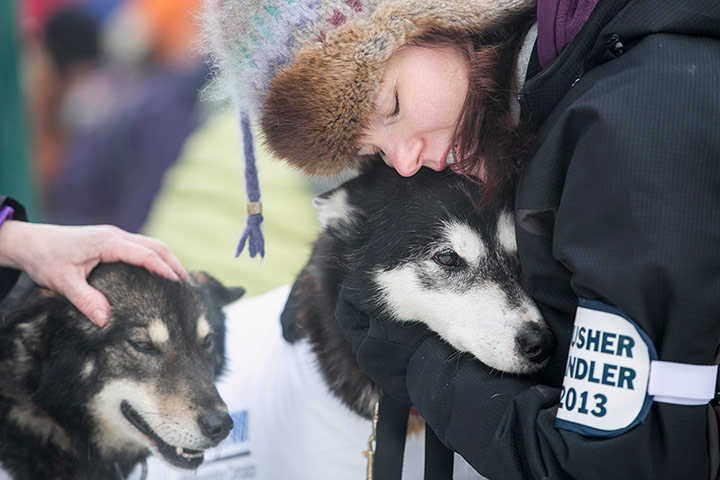Nourish Your Pack First
Rona Cant, of Oxford England, should change her name to Rona Can.
After being an English housewife and raising two children, she decided life was missing something. She wasn’t the type to host afternoon tea, so she started a business in fabrics and upholstery. That wasn’t quite satisfying enough, so she decided she needed another degree and enrolled at a University. Something was still not quite right. She felt a bit unfulfilled, so she started taking sailing lessons.
Finally realizing she was confusing busyness with fulfillment, she signed on to a yacht crew to race around the world. But before she could feel competent to race, she completed the arduous Yachtmaster ocean certificate to ensure her capability and contribution on the boat. And just for good measure she also completed a diesel engine mastery course just in case the ship’s engines needed repair while far from harbor.
Then she participated in another around the world yacht race. Then a third race around Great Britain and Ireland. And this time winning. Now you are introduced to the kind of flinty, tenacious, can-do person that Rona is.
So it won’t surprise you to learn that after winning the sailing race around Great Britain and Ireland, she signed on to be part of a three-person expedition to drive dogsleds through the remote wilderness and mountains of Norway 500km to the very tip of the Norwegian landmass where it touches the arctic ocean. To a remote outpost of snow and ice on the edge of the world called Nordkapp. It wasn’t even a trail. In fact the goal was to create the trail – pioneer it – so that it could be done again.
In our interview last week, Rona described to me something I found fascinating about dogsledding in the northern wilderness. Each evening they would camp near a frozen lake or river. While Cathy erected the tents and Rona built a fire and untethered the 28 sled dogs and inspected them for cuts and injuries, their guide Per Thore would take an immense auger and drill a hole through a meter of ice. Then Rona would hike to the well he had created on the lake, post-holing her way through the waist-deep snow to ladle 40 litres of water into a plastic container and haul it to the campsite.
This required several trips to deliver all of the water to where Per Thore was busy sawing chunks of frozen reindeer meat to mix with dry food and water, and then set over a campfire to make a stew for the dogs. The dogs required over 60 kilos of food per day.
And then Rona would return to the hole in the ice to retrieve 10 litres of water for the humans. You see, only after the dogs were fed, and cared for, would the humans take their first sip of water. When you hear her tell the story the reason is obvious. Without the dogs in the wilderness you die. Without the dogs you are going nowhere. They are the engine that makes the expedition possible, and without their health and well-being, and rest and focus, all is lost.
The same is true on teams. The people on our teams, in our organizations, are the reason our companies exist at all. And when the boss spends all of his time working, refining and forwarding their own agenda – their own mission and aspiration for promotion, or money, or recognition – it’s the beginning of the end. Things start to break down. Not just the processes and integrity and quality of what your company delivers, but the very people within the organization begin to suffer emotionally and even physiologically.
Remember, nourish the people first. The expedition will go great places.



